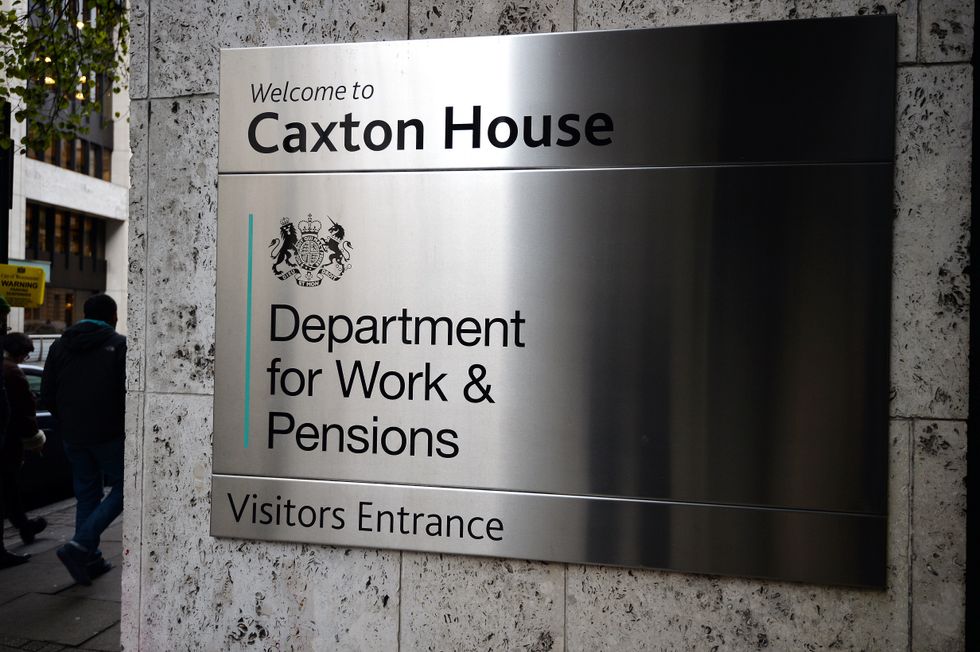State pension age to start rising in just months with Britons to be forced to work longer from next year

All individuals born from March 6, 1961, to April 5, 1977, will have to wait until age 67 | GETTY

The decision to raise the state pension age is based on the Pensions Act 2014
Don't Miss
Most Read
Major shifts are on the horizon for those approaching retirement across the UK.
The state pension age is set to rise in just 12 months - affecting millions of workers born in certain years.The rise will take place from May 6, 2026, with the full impact expected by 2028. This shift, which has been set in law since 2014, will affect millions of people born between April 6, 1960, and April 5, 1977.
With life expectancies rising, these adjustments are part of broader efforts to ensure the pension system remains sustainable. Those approaching retirement should be aware of how this could impact their plans.
The phased implementation means individuals will no longer reach state pension age on a specific date.
Instead, those affected will become eligible to claim their state pension once they turn 67, or at 66 plus a number of additional months based on their birth month.
LATEST DEVELOPMENTS:
For example, people born from April 6, 1960, to May 5, 1960, will be eligible at 66 years and one month. Those born between November 6, 1960, and December 5, 1960, must wait until they are 66 years and 8 months old.
All individuals born from March 6, 1961, to April 5, 1977, will have to wait until age 67.
Former pensions minister Steve Webb, now a partner at consultants LCP, highlighted the lack of public awareness around pension age changes.
He said: "Recent history shows that people are often unaware of changes to their State Pension age so it is important that everyone checks their own pension age."
The Department for Work and Pensions (DWP) will send notification letters well in advance to those affected by the changes.

The Department for Work and Pensions (DWP) will send notification letters well in advance to those affected by the changes
| GETTYIt's worth noting that the state pension age is different from the age at which you can access a workplace or personal pension. The 'Default retirement age', which previously enforced retirement at 65, no longer exists.
The decision to raise the state pension age is based on the Pensions Act 2014, which expedited the elevation of the state pension age from 66 to 67 by eight years.
The rationale behind this adjustment is to ensure the pension system remains financially viable as people live longer. The Pensions Act 2014 mandates a regular review of the State Pension age at least every five years.
These reviews are guided by the principle that individuals should spend a certain portion of their adult life receiving a State Pension.
A further increase from 67 to 68 is already planned to take effect between 2044 and 2046, as per the Pensions Act 2007. Individuals affected by this change should verify their specific state pension age using the online tool provided by the DWP.

Thousands will be impacted by the changes
| GettyIt's advisable to review personal retirement plans and consider additional savings or pension schemes to ensure financial stability.
For those concerned about gaps in their National Insurance record, HMRC has a digital service to boost State Pensions.
Alice Haine, personal finance analyst at Bestinvest, noted: "People typically need at least 10 qualifying years of NI contributions to receive any state pension at all and at least 35 years to receive the full new State Pension."
Those experiencing financial hardship due to the delayed pension should explore benefits like Pension Credit. The government has committed to reviewing the state pension age periodically, taking into account factors such as life expectancy and demographic changes.
Under the DWP rules, Britons can continue working beyond the state pension age if they wish.










